Mississippi Transplant: Kendall Dunkelberg
"I don’t know that I would call it a sense of duty that keeps me rooted in Mississippi, but more a sense of discovery and a sense of purpose."
What does it mean to call Mississippi home? Why do people choose to leave or live in this weird, wonderful, and sometimes infuriating place? Poet and Director of The Mississippi University for Women’s MFA program Kendall Dunkelberg lived in many different places—from Belgium to Texas—before moving to Columbus, Mississippi. As an academic, Kendall assumed he wouldn’t stay long in Mississippi, but his role as a teacher and community builder have kept him rooted here. Kendall’s forthcoming collection of poetry, Tree Fall with Birdsong, includes poems that “are inspired by the landscapes in Mississippi, the birds, trees, and wildflowers I see on my morning walks or my friends and neighbors, even complete strangers I’ve encountered along the way.” Today, Kendall shares with us the discoveries he’s made about Mississippi over the thirty years he’s called this state home.
Where are you from?
This is such a good question with more than one answer. I was born and raised in Osage, Iowa, and I’ve lived many different places since then (Belgium, Texas, Chicago to name a few), but I’ve lived the longest (over thirty years now, so nearly half my life) in Columbus, Mississippi. Am I from where my journey started or where I’ve stayed the longest? I think I’m from all these places because they all inform who I am.
When did you move to Mississippi and why did you move here?
I moved to Mississippi when I was hired to teach English at Mississippi University for Women. At the time, I didn’t know that much about the state and didn’t necessarily expect to stay here for my whole career, but Mississippi has been a great place for me to grow as a writer and an educator. In the beginning, I wasn’t dying to leave, but I did assume that as an academic, I might move around for a while before I found a permanent home.
Am I from where my journey started or where I’ve stayed the longest? I think I’m from all these places because they all inform who I am.
What does “home” mean to you? How does Mississippi fit into that definition?
Home has meant a lot of things to me. Until this year, home meant my mother’s house in Osage, where I grew up. My mother passed away in January at the age of ninety-seven so that definition is in transition as we prepare to clear out the house that she had lived in for over seventy years, which will usher in a new era for my family and me.
Home has also meant the many places I’ve lived before coming to Mississippi. I made Chicago and Austin, Texas my home for a time, and I have deep roots in Ghent and Leuven, Belgium, where I have lived while an exchange student and while on two Fulbright fellowships.
Home has certainly meant my home here in Columbus, both the physical spaces I inhabit and the family and friends that I have made a home with. From there home stretches out to the friends, colleagues, and former students around the state and further afield that I have known from here. Home can be anywhere, and a place becomes my home more through those relationships than through the physical spaces, and yet I have also always formed a deep attachment to the landscapes around me, the flora and fauna and the cycles of the seasons.
What do you miss most about the places where you’re from?
I miss having four distinct seasons and especially the fall colors, which are more brilliant there than in Mississippi, where the change is more subtle and the differences between fall and winter are less distinct. I’ve had the good fortune the last couple of years to visit Iowa in late September and early October and see those changes again. I miss the cold and snow as well, though I don’t mind missing them quite as much. We’ve usually been able to visit over the holidays and I’ve gotten a reminder of truly cold weather. I haven’t missed much about Iowa because we were always able to visit my mother, but now I’m preparing myself to miss going to that house and having the warmth of our extended family around me.
I come from a small, rural town, so the differences with Mississippi are not as great as you might think. I imagine I would have had a harder time adjusting if I had grown up in an urban environment. I also lived in many different places before coming to Mississippi, and that made the transition easier. I miss the multicultural and multilingual experience of life in Belgium at the center of Europe within easy travel distance to major metropoli. I miss the cultural complexity of a city like Chicago, and I miss the wildflowers of Texas and its deep-seated Tejano culture. And yet, none of these places are so far removed that I can’t get there from here, and there are ways to find and build similar experiences here.
How have you cultivated community in Mississippi? Who are the people who have made you feel rooted here?
My community has been centered around The W in many ways. That is where I spend most of my time and energy, after all. I have good friends and colleagues in our department and across campus, and I have also cultivated friendships with students and alumni. Former students who stay in touch and who live or move around the state have helped me to feel more connected to the state as a whole, and not just a campus or the town I live in.
Directing the Eudora Welty Writers’ Symposium has been a way to cultivate a literary community in the state and in the South. I have many writer friends, whether they are alumni of our MFA program or writers I have brought to campus. The Mississippi Philological Association and the Southern Literary Festival have also been important groups to keep that sense of a literary community alive, as is being editor of Poetry South and working with Ponder Review, two magazines our MFA program produces. I’ve had the good fortune to give readings at the Mississippi Book Festival and at bookstores, libraries, and events around the state. Along with The W’s alumni association, these institutions sustain me and feed my creativity, and I hope that I can give back to my community through them as well.
I was just up in Oxford for the launch of Ann Fisher-Wirth’s new ecopoetry anthology Attached to the Living World, which was a marvelous reminder of the poetry community we have in the state. I got to read with Ann, Beth Ann Fennelly, Aimee Nezhukumatathil, Melissa Ginsburg, and some new poets I met for the first time: Stacey Balkun, Al Favilla, Maggie Graber, and Leona Sevick, all living in Mississippi or with strong Mississippi connections. My former student C. T. Salazar has been a driving force in gathering Mississippi poets, and you’re doing so much with Rooted to build community. I’m grateful for all of this and glad to be a part of it.
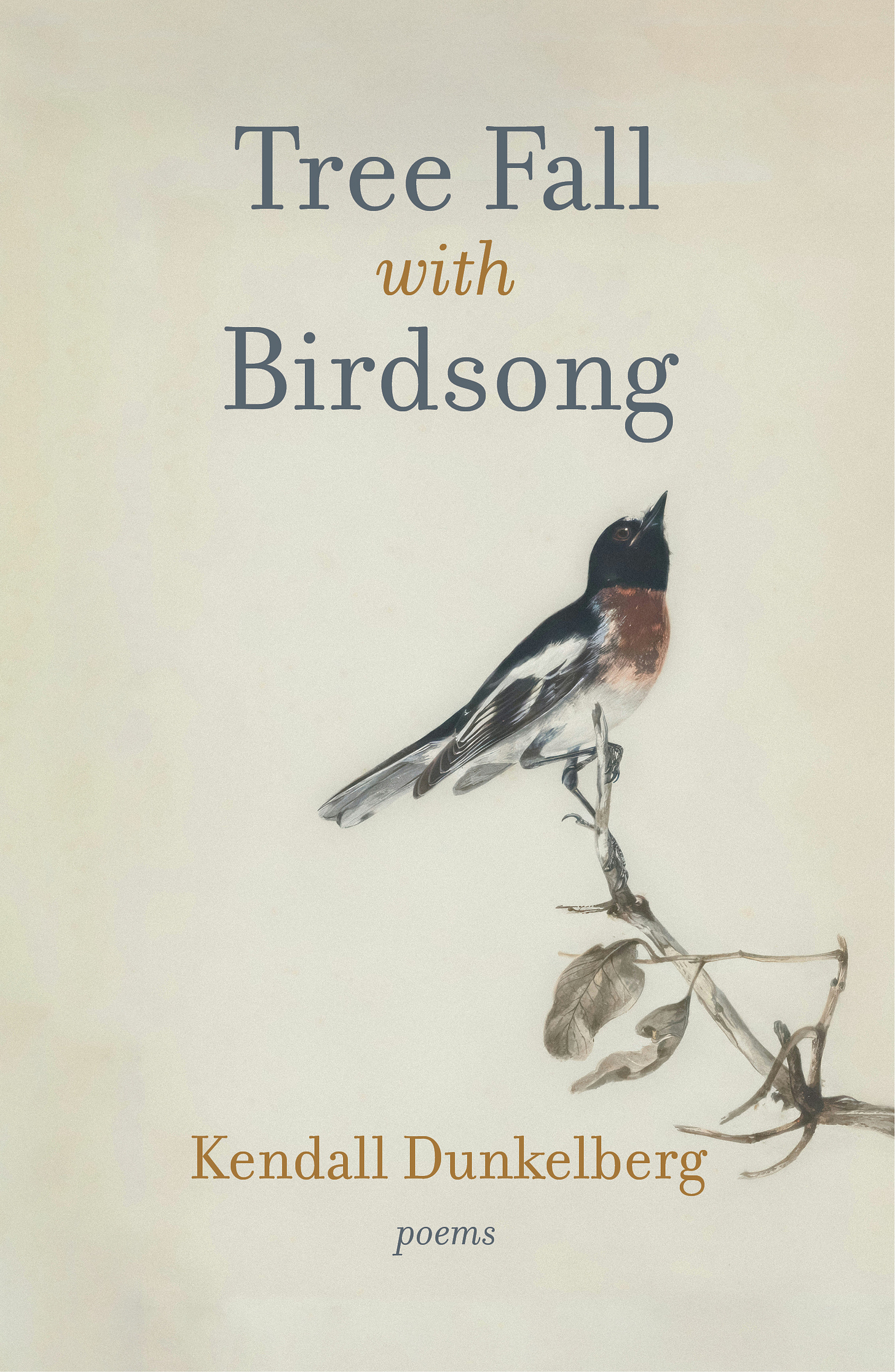
What’s the weirdest question or assumption you’ve encountered about Mississippi (or about you as a Mississippian) by someone who’s never been here?
I really don’t notice many weird questions about Mississippi. The main question I get is whether Mississippi University for Women is still a single-sex institution, and if not, why don’t we change our name? I respond by giving some of our history: how we were the first state-supported college for women in the country and became co-ed after Supreme Court Justice Sandra Day O’Connor wrote her historic first majority opinion that required the school to open up its Master of Nursing program to male students. At that point, The W decided to grant all degrees to male students, though we had been admitting men already, just not granting them a degree.
Sometimes I acknowledge that our full initial name was the Industrial Institute and College for the White Women of Mississippi and follow with a discussion of how we were integrated in 1966 by six brave young Black women. While we didn’t have the level of violence that was encountered with integration at other institutions in the state, it wasn’t easy for these pioneers either, but thanks to them we are now the most culturally diverse university in the state with a student population that reflects the demographics of the state as a whole. With that much history, changing a name is a complicated path to go down. We’ve had three names, and they’ve always included “women.” Changing the name has been attempted three times in the past thirty years, but never successfully. When you change a name, you risk losing your identity and name recognition, so it may be better to own our identity and history and work with the name we have.
Though I don’t get a lot of questions about the state, most of the time Mississippi does take some explaining, but fortunately we are so well known for our writers, musicians, and artists, that people get why I might stay here. There are benefits, like the low cost of living and the thriving cultural community that go a long way to outweigh the negative stereotypes that, unfortunately, some in Mississippi are working hard to bring back.
I don’t know that I would call it a sense of duty that keeps me rooted in Mississippi, but more a sense of discovery and a sense of purpose.
How has living in Mississippi affected your identity and your life’s path?
I met my wife here (she’s from Alabama) and we raised our child here, so I can’t imagine what my life would have been had I lived somewhere else. I have become “rooted” in ways I couldn’t have imagined when I first arrived, and I wrote a poem in my second collection Time Capsules titled “Possum Town” that deals with putting down roots and the complicated relationship I have with this place. In my latest collection, the poem “Beso con Lengua” returns to this theme, thinking of it in terms of food in the places I’ve lived. Many of the poems in Tree Fall with Birdsong are inspired by the landscapes in Mississippi, the birds, trees, and wildflowers I see on my morning walks or my friends and neighbors, even complete strangers I’ve encountered along the way.
One of the things I appreciate most about life in Mississippi is the ability to remain connected to the natural world and to carve out time from our busy lives to appreciate the cycles of the seasons, to witness bird migrations, and even to come together to clean up and rebuild after our powerful storms. There is a resilience in the weeds and wildflowers that we constantly need to draw on, and it can be good to remember that all of our daily cares and turmoil are ultimately no more than an insignificant blip in geologic time or the scale of the universe.
What is something that you’ve learned about Mississippi only by living here? In what ways has Mississippi lived up to your expectations?
I’d have to say I have learned nearly everything I know about Mississippi by living here. I’m sure I knew a little of its history before I arrived, but only as part of a broader narrative of American history. I knew of the blues, but didn’t know it in the deep way you can know it when they are part of your soil and the history of the place. I have learned not just that the Civil Rights movement happened in places like Mississippi, but I have learned of the enormous courage and the unbending yet gracious will that it took and still takes to make change happen and continue to happen. And I have learned to recognize the backlash to Civil Rights for what it is. I’ve lived through both attempts to change the state flag, and been thrilled to see that change happen only to now be faced with anti-DEI bills and other attempts to claw back the gains that have been made. And yet, I have also learned that there are many, many people of good will all over the state, that change has happened, and that people will not go back to the old ways without a fight.
There is a resilience in the weeds and wildflowers that we constantly need to draw on, and it can be good to remember that all of our daily cares and turmoil are ultimately no more than an insignificant blip in geologic time or the scale of the universe.
Have you ever thought about moving away? Does a sense of duty keep you rooted here? Do you have a “tipping point”?
I thought about moving away a lot in the beginning. Not because I was so dissatisfied with where I was, but because I just assumed I would. And there were opportunities that we all want in life and that I didn’t have any idea that I could find here until I did find them. I don’t know that I would call it a sense of duty that keeps me rooted in Mississippi, but more a sense of discovery and a sense of purpose. I have met so many students over the years who have incredible stories. Many are extremely talented, yet often underprepared to make the most of those talents, or they haven’t had the support and encouragement they need to develop. They have taught me so much about this state, about myself, and about why it is important to stay the course. There have been many “tipping points” in my time in this state, and many successes. If the state and federal government make it impossible to serve the communities I have served, then that may well be a tipping point. Whether it will tip me into leaving or tip me into fighting harder is difficult to say. We do think of moving in retirement, though if we do, it will have less to do with Mississippi and more to do with being near family.
What do you wish the rest of the country understood about Mississippi?
What I wish the rest of the country understood is that they are, and never have been, that different from Mississippi. Racism, homophobia, intolerance, and even poverty exist everywhere. Mississippi may be at the bottom of most lists nationally, and therefore these things can seem more blatant here, yet so is the resistance. There are many people of good will who are doing incredibly important work in this state, and there is an incredible amount of work yet to be done. It is easy to concentrate on the challenges, and not pay attention to those who rise to meet those challenges every day.
Do you have a favorite Mississippi writer, artist, or musician who you think everyone needs to know about?
I have to say Eudora Welty, not just out of allegiance to our alumna and the namesake of the Eudora Welty Writers’ Symposium, but because of her sly and subtle critique of Mississippi, a state she loved and mercilessly chastised in her fiction. I think she is often read as a Southern gothic humorist, yet she was also a keen observer and a highly intelligent and critical reader of the power dynamics in her state, both in terms of gender and of race. She is often criticized for not dealing with the Civil Rights issues of her time, but that is because readers only look at the surface and don’t notice the subtle critique brought by the minor characters who often populate her novels and short stories. I return to her work at least once a year and am always amazed at the depth of her understanding.
Read more poetry, it’s not as hard to read as you’ve been led to believe, and there will not be a test—unless you’re in one of my classes.
If you had one billion dollars to invest in Mississippi, how would you spend your money?
Right now, I would give that billion dollars to the Arts Commission and the Humanities Council who are facing drastic cuts in federal funding, and I would earmark it for educational programs for youth and for adults to promote literacy and the arts. You could argue that we need it for economic development or healthcare, but that will have to come from someone else’s imaginary lottery ticket. Mine would go to the arts that keep dreams alive and allow us to communicate them, and to the humanities that preserve our history and help us document who we are in the present to save for posterity. We need a chronicle of this moment in music, poetry, visual arts, drama, and every other art form we can create, both as record and as resistance.
What or who do you want to shamelessly promote? (It can absolutely be a project you’re working on, or something you are involved in.)
First, I would promote The W’s English program and MFA in Creative Writing, where I have such great colleagues and students who are doing excellent work. And of course, I’d like to plug my new collection of poetry Tree Fall with Birdsong, which explores loss and renewal in the landscape around Columbus, Mississippi, as well as in my hometown of Osage, Iowa. And finally, I want to mention the two poetry anthologies I’ve been included in recently: Attached to the Living World: A New Ecopoetry Anthology and Southern Voices: Fifty Contemporary Poets. Both have made incredible selections, and each are a great read. Read more poetry, it’s not as hard to read as you’ve been led to believe, and there will not be a test—unless you’re in one of my classes.
Kendall Dunkelberg directs the low-residency MFA in Creative Writing and the Eudora Welty Writers’ Symposium at Mississippi University for Women. He is editor of Poetry South and has published three collections of poetry, Barrier Island Suite, Time Capsules, and Landscapes and Architectures, as well as the creative writing textbook, A Writer’s Craft: Multi-genre Creative Writing. His fourth collection, Tree Fall with Birdsong will be published by Fernwood Press in May 2025. His poems have recently appeared in Birmingham Poetry Review, River Mouth Review, Peauxdunque Review, and Salvation South, and he has poems featured in Attached to the Living World: A New Ecopoetry Anthology and Southern Voices: Fifty Contemporary Poets. Find him on Bluesky, Mastodon, Instagram, Threads, and Facebook @kdunkelberg and at kendalldunkelberg.com.
One year ago:
Mississippi Native: Snowden Wright
"That’s how Mississippi has affected my identity. It made me a novelist."
Mississippi Mother
"My own experience of motherhood is bound up in my experience of place, of Mississippi."
Two years ago:
Mississippi Native: Amanda Furdge
"i do feel a sense of duty to this place because it is home for me. i know too much to not handle this place with a certain level of care. nobody can take care of your home the way you do."
Sardis Hotel & Cafe
"Theirs was a turbulent household. Dorothy is said to have stabbed Paul at least once, and also to have shot him. My mother claimed that Dorothy chose to shoot her husband because he had hit one of the children. The implication was that this was the only time he had ever done such a thing, and for that action he had been suitably punished."




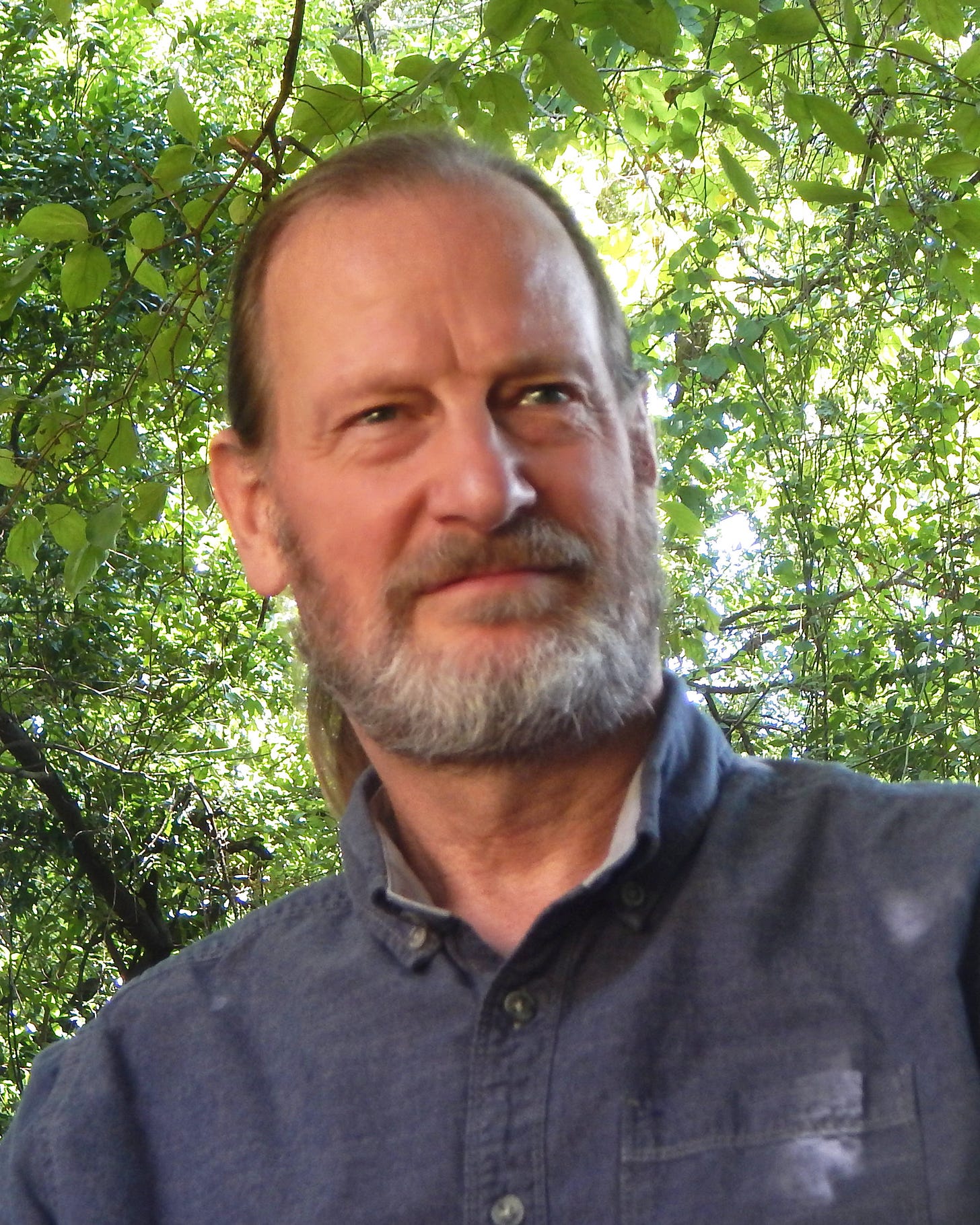
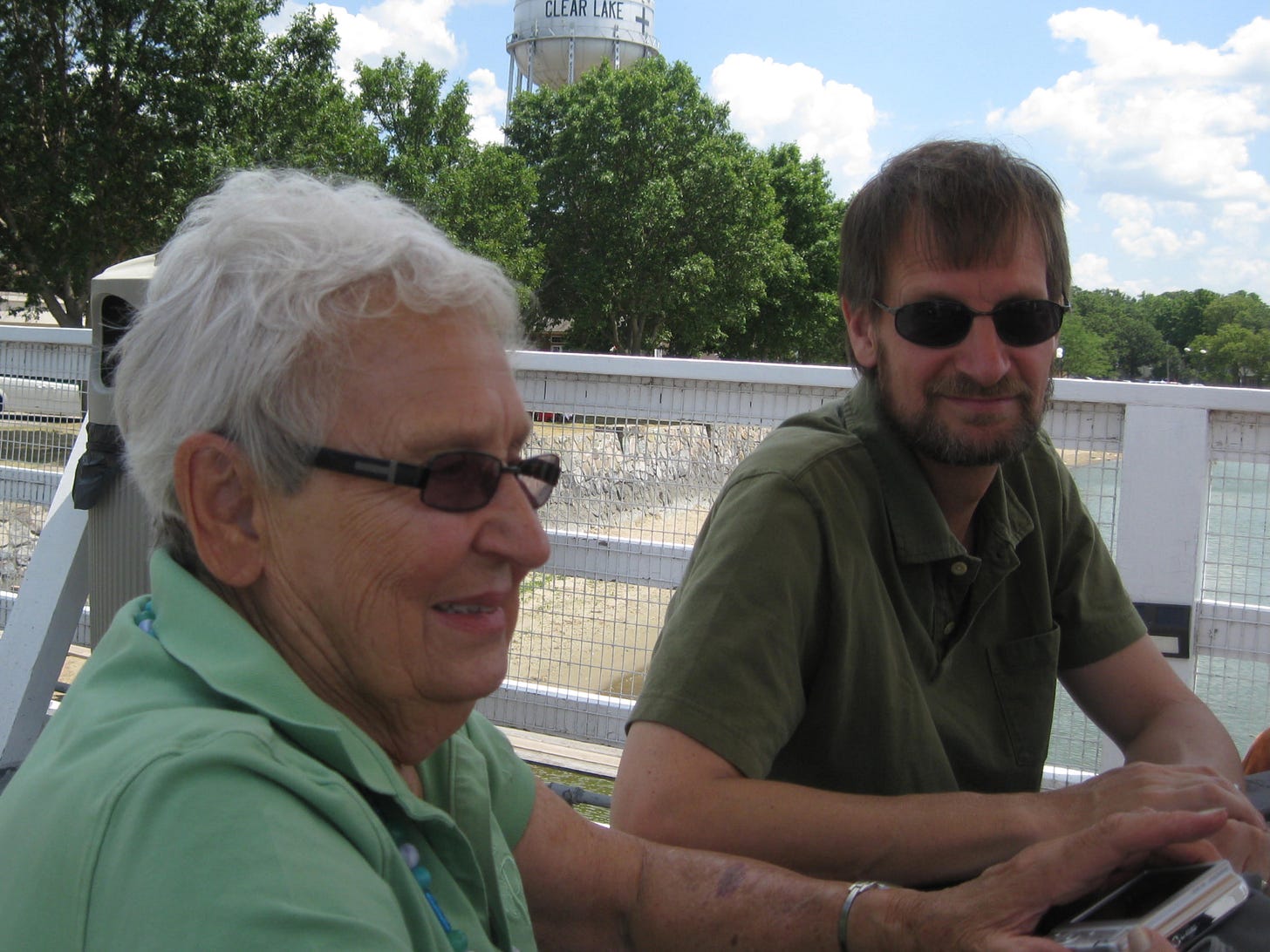
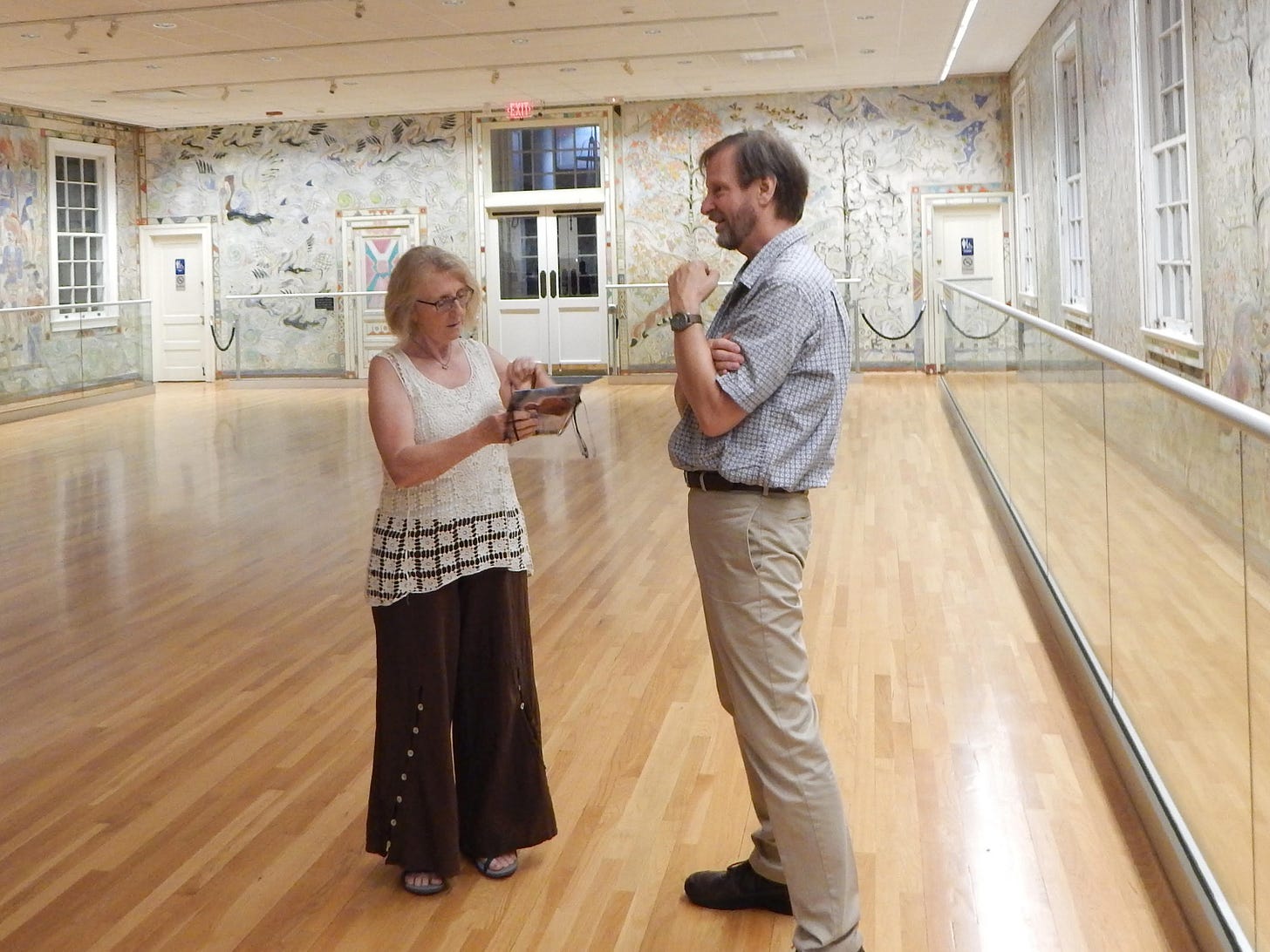
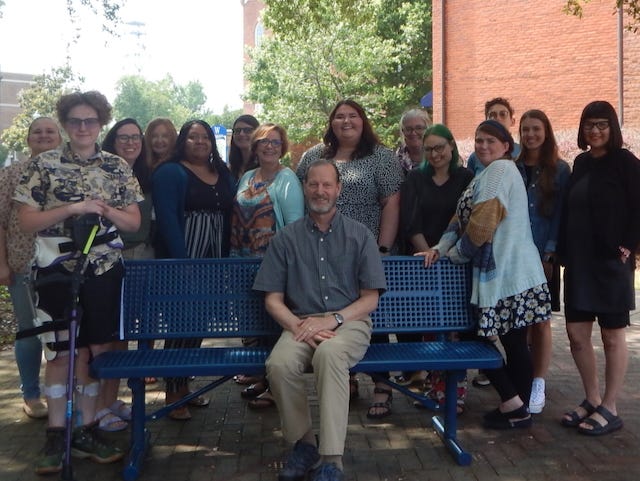
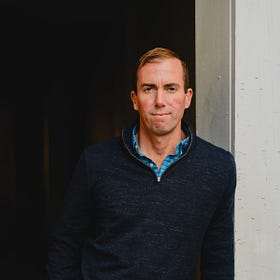
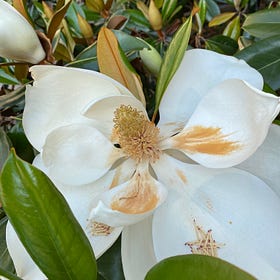


Thank you for another great interview. We attend the Eudora Welty Writing Conference at the W each year and have appreciated Kendall's work in pulling such a top shelf event together. I'm very grateful for these insights into who he is as a person, professor, writer and 'transplant' Mississippian!
"There is a resilience in the weeds and wildflowers that we constantly need to draw on" - I totally agree with you! And you give me hope when you say, "people will not go back to the old ways without a fight." (By the way, how wonderful to live in the same town as Van Eyck's Ghent Altarpiece for a while!)